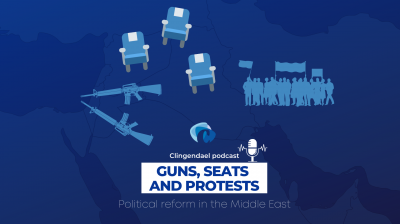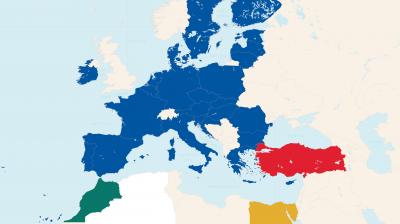The Egyptian political economy under al-Sisi
Egypt’s political economy has been operating on the basis of three core principles over the last few decades. First, the country’s political authorities set strategic economic objectives in a top-down manner. Second, the power elite supports the political authorities and, in exchange, tightly supervises homegrown and foreign investment to generate revenues and job opportunities, as well as private benefits. Third, Egyptian citizens acquiesce, willingly or unwillingly, in this division of power that mostly benefits the political authorities and power elites in exchange for improvements in their livelihoods.
Since 2014, President al-Sisi has held closely to these principles but relied increasingly on Egypt’s military networks (part of the power elite) to boost economic growth. This strategy has produced short-term gains – informal jobs and an array of consumer goods – at the expense of long-term economic prospects. In particular, the military’s economic influence has deepened some of Egypt’s structural problems: low productivity, inequality, informal unemployment and a suppressed private sector. This limits the future sustainability of the current economic model. Improving Egypt’s economic prospects requires reducing the role of the state – especially the military – in the economy in terms of decreasing the number of associated enterprises and lightening the regulatory framework. However, this is nearly impossible to realise in sectors in which the military already has a dominant profile, such as construction and extractives, because its support is essential for al-Sisi to maintain power. A more promising alternative for European policy makers to consider is influencing the Egyptian government to limit military influence in sectors with growth potential where the military is largely absent, such as manufacturing and Information and Communications Technology (ICT). A government strategy that prevents further military involvement in these sectors, crafts a regulatory framework conducive to private investment and invites foreign funding, can help Egypt realise greater economic growth and higher fiscal revenues.
Follow @philoteo & @Clingendaelorg on Twitter.










